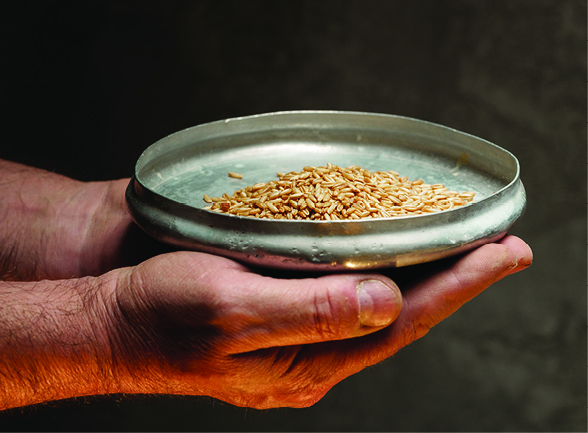
Global hunger crisis set back 15 years, UN report reveals
7-24-2024
 Email
to a friend Email
to a friend
 Post
a comment Post
a comment
 Print Print
RIYADH: The 2024 State of Food Security and Nutrition in the World, or SOFI, report, jointly published on Wednesday by five UN agencies under the theme “Financing to end hunger, food insecurity and all forms of malnutrition,” highlighted the deepening global food crisis.
The heads of the five UN agencies — the Food and Agriculture Organization, World Health Organization, International Fund for Agricultural Development, World Food Programme, and UNICEF — emphasized the urgent need for increased and more efficient financing to address these complex challenges. They called for transformative measures in agrifood systems, equitable access to resources, and enhanced international cooperation to mitigate the impacts of food insecurity and malnutrition.
FAO Director-General Qu Dongyu said: “Transforming agrifood systems is more critical than ever as we face the urgency of achieving the SDGs within six short years. FAO remains committed to supporting countries in their efforts to eradicate hunger and ensure food security for all.
“We will work together with all partners and with all approaches, including the G20 Global Alliance against Hunger and Poverty, to accelerate the needed change. Together, we must innovate and collaborate to build more efficient, inclusive, resilient, and sustainable agrifood systems that can better withstand future challenges for a better world,” Qu added.
The report, unveiled during the G20 Global Alliance against Hunger and Poverty Task Force Ministerial Meeting in Brazil, underscored that the international community is falling significantly short of achieving Sustainable Development Goal 2, zero hunger, by 2030. Highlighting a setback of 15 years in progress, the report compares current undernourishment levels to those last seen in 2008-2009.
In 2023, approximately 733 million people worldwide faced hunger, marking a continuation of the high levels observed over the past three years. This equates to one in 11 people globally, with the situation particularly dire in Africa, where one in five individuals grappled with food insecurity.
While there have been some gains in specific areas such as reducing stunting and promoting exclusive breastfeeding, the overall number of undernourished people is at a constant, ranging between 713 and 757 million in 2023. Regional disparities persist, with hunger increasing in Western Asia, the Caribbean, and several African subregions, while remaining stable in Asia and showing improvement in Latin America.
The report’s projections for 2030 suggest that around 582 million people will continue to suffer from chronic undernourishment, half of them in Africa. This mirrors levels observed in 2015 when the SDGs were adopted, indicating a plateau in progress.
Beyond hunger, the report highlights broader challenges in food security and nutrition. In 2023, 2.33 billion people faced moderate or severe food insecurity, worsened by various factors such as economic decline and climate change.
The affordability of healthy diets is also a critical issue, particularly in low-income countries where over 71 percent of the population cannot afford adequate nutrition.
Despite gains in exclusive breastfeeding rates and reductions in child stunting, the world is still faced with many challenges. Rates of wasting among children and adult obesity are concerningly high, states the report, and indicate a double burden of malnutrition affecting global populations.
“The fastest route out of hunger and poverty is proven to be through investments in agriculture in rural areas. But the global and financial landscape has become far more complex since the Sustainable Development Goals were adopted in 2015,” said IFAD President Alvaro Lario.
“Ending hunger and malnutrition demands that we invest more — and more smartly. We must bring new money into the system from the private sector and recapture the pandemic-era appetite for ambitious global financial reform that gets cheaper financing to the countries who need it most,’’ Lario added.
The report urges unified global action to achieve SDGs by 2030 by adopting and prioritizing innovative solutions and substantial investments to ensure that all people have access to safe, nutritious, and sufficient food.
The SOFI report is an annual assessment providing insights into global progress toward ending hunger, improving food security, and advancing nutrition under the framework of the 2030 Agenda for Sustainable Development. Its findings are intended to guide policymakers, international organizations, and the public in addressing these pressing global challenges.
|